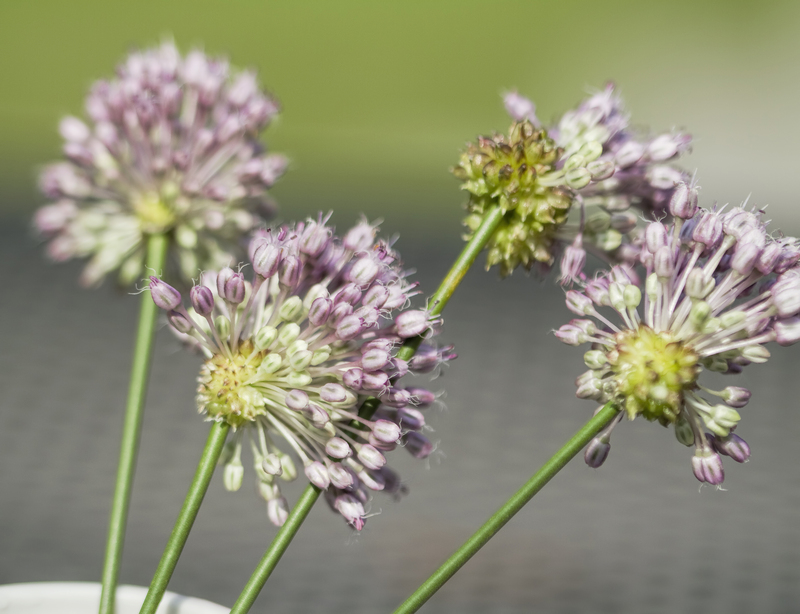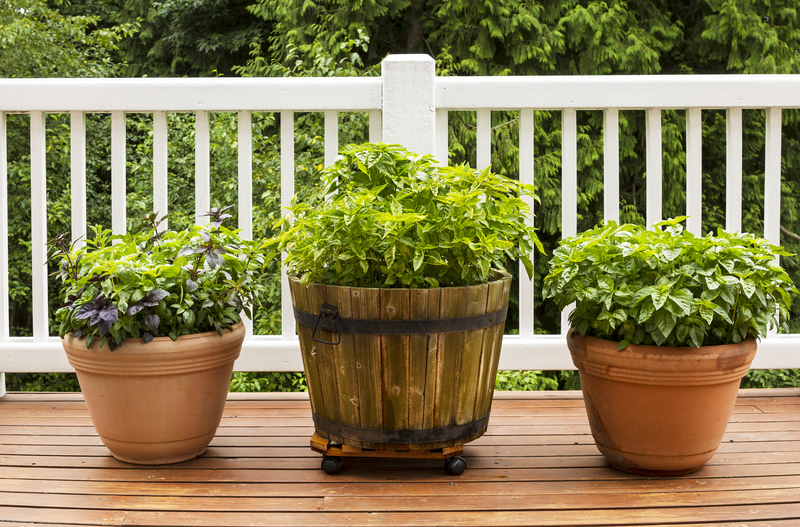From Scraps to Soil: The Organic Waste Journey
Posted on 25/06/2025
Every year, millions of tons of organic waste are generated across the globe. From fruit peels left over after breakfast to yard trimmings gathered on a weekend, these seemingly insignificant materials all have the potential to become treasured resources for our soil and environment.
But how does food waste and biodegradable scraps transition from being discarded remnants to fertile, nutrient-rich soil? Join us as we explore the fascinating, eco-friendly adventure of organic waste, illuminating its pivotal role in environmental sustainability and sustainable agriculture.
What Is Organic Waste?
Organic waste, also known as biodegradable waste, comprises naturally-originating materials that easily break down over time. This includes, but is not limited to:
- Food scraps (fruit and vegetable peels, leftover meals, coffee grounds)
- Yard trimmings (grass clippings, leaves, branches)
- Paper products (uncoated paper towels, napkins, cardboard)
- Other biodegradable materials (hair, tea bags, eggshells)
Unlike plastics and inorganic refuse, organic materials can undergo decomposition, returning essential nutrients to the ecosystem. But, without a proper system in place, a great amount of organic matter ends up wasted in landfills, contributing to environmental concerns.
Why Should We Care About the Journey of Organic Waste?
Learning about the path from food waste to soil is more than just understanding a natural process. It's about understanding the opportunity for:
- Reducing landfill pressure
- Lowering greenhouse gas emissions
- Recycling nutrients for better soil health
- Supporting sustainable food systems
Let's follow the organic waste journey and see how we all can make a difference, starting in our own homes.

Stage 1: Collection and Sorting of Organic Materials
Before organic waste can be reborn as rich compost, it must be collected and separated from non-biodegradable trash. Efficient separation is crucial--a stray plastic or a bit of metal in the compost can slow down decomposition or contaminate the finished product.
- At Home: Households use green bins or backyard composters to gather kitchen scraps and garden waste.
- On a Commercial Scale: Restaurants, supermarkets, and food processors often partner with waste management companies to properly sort and collect their organic byproducts.
*Fun fact: According to the EPA, food is the single largest category of material placed in municipal landfills, accounting for over 24% of all solid waste. Diverting even half of this into composting could significantly reduce waste burdens.
Eco-Friendly Tips for Sorting Organic Waste
- Keep a designated bin in your kitchen for organics.
- Remind family members what can and cannot be composted.
- Avoid adding meats, bones, or dairy to basic home compost setups--they decompose slowly and can attract pests.
- Empty organics often to prevent odors and pests.
Stage 2: The Science of Decomposition
How Does Organic Waste Break Down?
The journey from scraps to soil hinges on the remarkable process of decomposition, a natural cycle powered by a cast of tiny organisms:
- Bacteria - Kick off the breakdown process, generating heat and transforming waste into humus.
- Fungi - Break down tougher items, like woody stems or paper products.
- Invertebrates - Worms, beetles, and other creatures physically fragment material.
The Importance of Balance: Carbon and Nitrogen
Successful composting and decay require the right ratio of carbon (browns) and nitrogen (greens). A balanced organic waste system enables rapid and odor-free decomposition:
- Carbon-rich "browns": dry leaves, shredded paper, cardboard
- Nitrogen-rich "greens": fruit/veggie scraps, coffee grounds, grass clippings
The ideal balance is roughly 2-3 parts carbon to 1 part nitrogen. Too much nitrogen leads to odor; too much carbon slows decomposition. Mixing and aerating your pile regularly maintains this balance and accelerates the transformation from scraps to fertile compost.
Stage 3: Composting--Nature's Ultimate Recycling
What Is Composting?
Composting is the managed process by which organic waste is biologically decomposed into a soil-like product called compost. Unlike landfill disposal, composting is a controlled environment in which beneficial microbes thrive and help return nutrients to the earth.
Types of Composting Systems
- Backyard (Home) Composting: Small-scale bins, tumblers, or open piles suitable for most households.
- Vermicomposting: Using worms (usually red wigglers) to rapidly break down food waste, ideal for urban dwellers and apartment composters.
- Community and Industrial Methods: Large, managed composting sites process yard waste and food scraps from many sources.
Steps to Compost at Home
- Pick a Location: Choose a shady, accessible spot in your yard.
- Add Ingredients: Alternate layers of "greens" and "browns."
- Maintain Moisture: Keep the pile as damp as a wrung-out sponge.
- Aerate Regularly: Turn the pile every 1-2 weeks for oxygen flow.
- Wait and Harvest: Compost is ready to use in 2-6 months when dark, crumbly, and earthy-smelling.
Benefits of Composting Organic Waste
- Reduces landfill volume and transportation costs.
- Prevents methane emissions (a potent greenhouse gas).
- Returns vital nutrients and microbes back to the earth.
- Improves soil structure and fertility.
- Helps plants resist pests and diseases naturally.
Composting transforms our food waste and scraps into a powerful tool for organic farming, home gardening, and soil restoration--closing the loop from consumption to regeneration.
Stage 4: The Magic of Mature Compost
After months of microbial activity and care, your organic waste is reborn as mature compost--a dark, earthy, nutrient-dense material gardeners and farmers call "black gold." But how is this precious resource used?
- Amending lawns and gardens to improve soil health
- Boosting crop yields in organic agriculture
- Restoring damaged or depleted soils
- Replenishing community green spaces and parks
What Makes Compost So Valuable?
Compost is more than a simple fertilizer. Its unique blend of stable organic matter:
- Enhances soil structure for better root development
- Improves water retention, reducing irrigation needs
- Feeds beneficial microbes that suppress plant diseases naturally
- Supplies slow-release nutrients essential for healthy plant growth
- Reduces the need for chemical fertilizers and pesticides
Stage 5: Closing the Loop--From Soil Back to Table
The story of organic waste recycling comes full circle when crops, nourished by compost-amended soil, produce nutritious food. These harvests, when prepared and consumed, inevitably generate more organic waste--and the cycle begins anew.
By adopting composting, we not only reduce our impact on the environment but also foster a resilient, sustainable food system that continuously replenishes itself, benefitting present and future generations.
The Circularity of Composting: An Illustration
- Food & yard waste is separated and collected
- Waste is composted, forming nutrient-rich soil
- Soil supports healthy crops and gardens
- Harvested produce is consumed, creating more organic waste
- The cycle repeats, reducing landfill use and environmental harm
Each step in the organic waste journey is integral to building a healthier, more sustainable planet.
Challenges and Innovations in Organic Waste Management
Current Barriers to Effective Composting
- Contamination from plastics and non-compostable items
- Lack of infrastructure in cities for large-scale collection
- Public awareness about what is compostable
- Regulation challenges around compost quality standards
Innovative Solutions for the Future
- Municipal organics curbside pickup and facility upgrades
- Apps and smart containers to help households reduce and sort food waste
- Educational campaigns teaching communities the benefits and how-tos of composting
- Advancements in compostable packaging to minimize contamination
Together, these strategies are propelling our global journey from kitchen scraps to fertile soil forward, helping communities, businesses, and governments close the nutrient cycle and combat climate change.

How You Can Be Part of the Organic Waste Journey
Wondering how you can join the movement and support the transformation from food scraps to soil? Here's what you can do:
- Compost at home, whether in your yard or with a small indoor worm bin
- Participate in local curbside compost collection programs
- Buy compostable goods and support stores and brands with compost-minded practices
- Educate others about the impact of organic waste and the importance of composting
- Use finished compost to nurture your garden, even if it's just a few potted plants
*Every bit of organic matter kept out of the landfill is a step toward a cleaner, greener planet. Your food scraps and yard trimmings might seem small, but together, they create powerful change.*
Conclusion: The Endless Potential of Organic Waste
The transformation from scraps to soil demonstrates nature's astonishing ability to regenerate. Through organic waste management and recycling, we not only shrink the amount of garbage destined for landfills, but we also create healthy soils, abundant gardens, and a more sustainable future. By getting involved at home and in our communities, everyone can play a key role in this cycle.
Let us celebrate and nurture the journey of organic waste--because every peel, every leaf, and every meal offers a chance to restore the earth beneath our feet.
Frequently Asked Questions About Organic Waste and Composting
- Is all food waste compostable? Most fruit, vegetable, grain, and coffee/tea wastes are, but avoid large amounts of oil, bones, or processed foods in backyard composts.
- What's the difference between compostable and biodegradable? Biodegradable items break down eventually, but compostable items decompose quickly and safely in a compost environment, leaving no toxic residue.
- How long does it take to turn organic waste into compost? Typically, 2 to 6 months, depending on conditions.
- Can composting help reduce climate change? Yes! It diverts waste from landfills and lowers emissions of methane, a potent greenhouse gas.
Start your own journey from scraps to soil today--our planet will thank you!
Latest Posts
How to Enjoy Gardening with Your Dogs
Unlock the Secrets: 9 Essential Gardening Tips for Beginners
Innovative Hedge Trimming Techniques and Shape Selection

